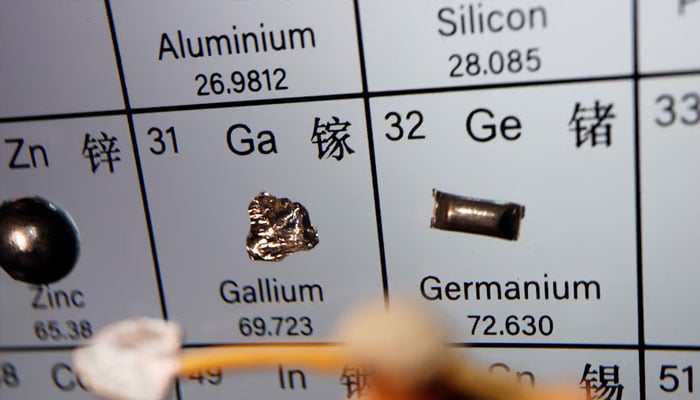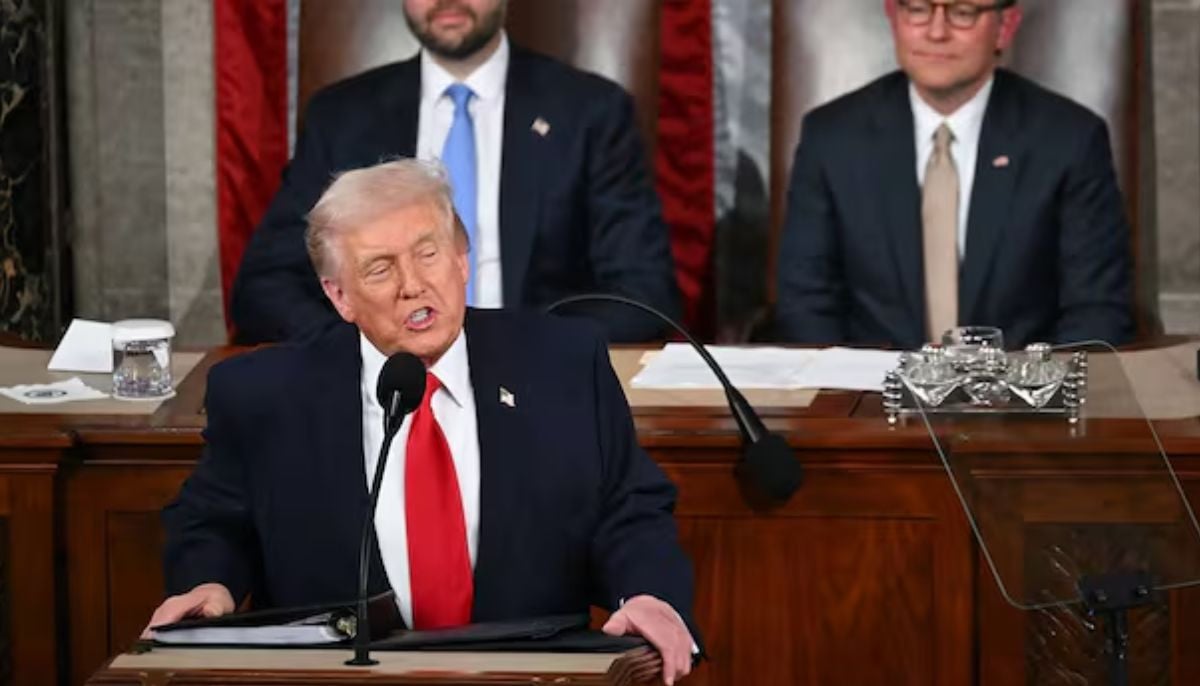China halts export of key minerals to US amid rising trade tensions
China's overall October shipments of antimony products plunge by 97% from September
China Tuesday imposed a ban on the export of critical minerals — gallium, germanium, and antimony — to the United States, intensifying trade tensions between the two countries, Reuters reported.
This move follows Washington’s latest action targeting China’s semiconductor sector. The new restrictions specifically impact the US market, building on previous export controls that China had gradually introduced since last year.
The Chinese Commerce Ministry's directive cites national security concerns related to dual-use items, which have both military and civilian applications.
The order, which took immediate effect, also mandates a stricter review process for graphite exports to the US.
"In principle, the export of gallium, germanium, antimony, and superhard materials to the United States shall not be permitted," the ministry stated.
Gallium and germanium are crucial in semiconductor manufacturing, while germanium also plays a key role in infrared technology, fibre-optic cables, and solar cells.
Antimony, used in weaponry like bullets and military applications such as infrared missiles and night-vision goggles, has also been restricted.
Graphite, the primary material used in electric vehicle batteries, is now subject to more stringent oversight for US shipments.
This move raises fears that China may extend similar restrictions to other minerals, such as nickel and cobalt, which have broader industrial uses.
Todd Malan of Talon Metals, which is developing a nickel mine in Minnesota, warned that China has long signalled its willingness to take such steps and questioned when the US would adapt to these challenges.
The US government is reviewing the new restrictions and is expected to take "necessary steps" in response. White House officials emphasised the importance of diversifying critical supply chains to reduce dependency on China.
Chinese exports of germanium and gallium to the US had already slowed this year, with no shipments recorded through October, while exports of antimony products plummeted by 97% in October.
China accounts for a significant portion of the global production of these minerals, making the latest ban a major escalation in the ongoing trade conflict.
Experts predict that prices for these critical materials, such as antimony, will rise sharply. The move also highlights the growing tension between the two powers, with some US companies calling for greater domestic mineral production to reduce reliance on China.
-
Nobel-winning scientist resigns from Columbia university after Epstein links revealed
-
At least 30 dead after heavy rains hit southeastern Brazil, 39 missing
-
Japan plans missile deployment near Taiwan by 2031 amid growing regional tensions
-
Trump delivers longest State of Union address in history: Inside key details on economy, security and global strategy
-
Trump’s 2026 State of Union address: Inside key takeaways, major policy shifts & top announcements
-
Rep. Al Green removed from House chamber during Trump’s State of Union address: Here’s what happened
-
Bill Gates breaks silence on Epstein links, ‘took responsibility for his actions’ during town hall meeting
-
President Donald Trump delivers the traditional State of the Union address to Congress












